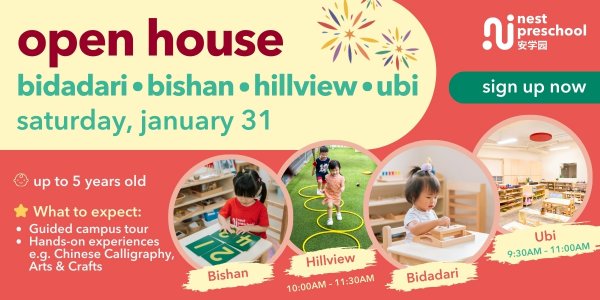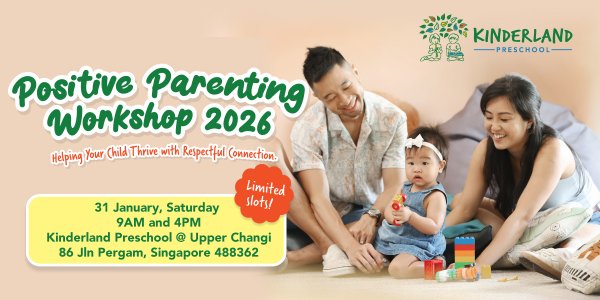Hello… Are You Even Listening to Me?
This article is part of a mini-series by Dr Henry Toi (Affiliate Director of the Institute for the Habits of Mind) who will share and explain the ways you can guide your children to cultivating good, lifelong habits.
Sounds like what you just said to your kid?
More often than not, do conversations with your children tend to end up with raised voices and bouts of tantrums that leave you vexed, frustrated, and completely drained? As parents, how could we handle our children’s incessant questions and occasional tantrums without going off the handle ourselves?
This may sound old by now, but the trick to good communication always starts with being a Good Listener. Most people assume that because they can understand words and their meaning, they have already listened.
Why Is It so Difficult to Be a Good Listener
Prof Arthur L. Costa, Education Professor at the California State University and Author of the Habits of Mind, suggests otherwise – to listen fully means to pay close attention to not just the words, but to what is being said along with the words. Ears operate at the speed of sound but the eyes operate at the speed of light, so it is important to also “listen” and perceive the visual indicators as well.
“Although we spend almost 60% of our lives seemingly listening to what others have to say, it is quite possible that listening is the least taught skill and what we pay the least attention to.”
Dr Henry Toi, Founder and Managing Director of Nurture Craft, Affiliate Director of the Institute for the Habits of Mind
 Researchers estimate that up to 80% of verbal communication is actually non-verbal. It consists of facial expressions, body posture, hand gestures and even the timing of the words. This is especially true of young children. When we choose to focus on our mobile devices, or continue to watch the addictive K-drama, or be absorbed by a problem we are trying to solve as our children are speaking to us – these are the times we hear, but fail to listen.
Researchers estimate that up to 80% of verbal communication is actually non-verbal. It consists of facial expressions, body posture, hand gestures and even the timing of the words. This is especially true of young children. When we choose to focus on our mobile devices, or continue to watch the addictive K-drama, or be absorbed by a problem we are trying to solve as our children are speaking to us – these are the times we hear, but fail to listen.
As adults, we may find it difficult to relate to our children’s choice of words and their feelings. By choosing to listen well, we are devoting time and energy to understand the information given, along with the feelings, motivations and context of the person who is articulating the words.
How Can We Get Better at It?
 Below is a short conversation between Ruby, her 6-year-old son, Johnny, and her 4-year-old daughter, Jenny, while Ruby was driving them to class.
Below is a short conversation between Ruby, her 6-year-old son, Johnny, and her 4-year-old daughter, Jenny, while Ruby was driving them to class.
“Johnny, are you listening to me? I have told you so many times not to do that to your sister!”
“Mummy I am hungry”
“Yes, Jenny, we are going to lunch soon ok?”
“Mummy I am thirsty.”
“There is some water in the back of the car, you can drink that first.”
“Mummy, Johnny is disturbing me again!”
“Arrggh!”
In this scenario, Ruby was driving and is probably more focused on the road than her children’s chatter, making it easy for Ruby to misinterpret the source of their whining, which most likely arises out of boredom rather than actual thirst or hunger.
What could Ruby have done to save herself from all that stress? She could try to use the three “P’s of Listening which is to Pause, Paraphrase and Probe.
- Jenny could pause to process the information and size up the situation instead of reacting to her kids. She could take a moment to calm down. By choosing to Pause, Jenny is allowing herself to integrate the information, feelings and context of what her kids are saying, and find an effective way to calm them down before hitting the road again.
- Paraphrasing what Jenny and Johnny have just said has two uses. It allows Jenny to confirm if she understands her children correctly, and provides them with the assurance that their Mummy is indeed paying attention.
- To get a better picture of what her children need, Jenny could further Probe and ask some questions to “fill in” the missing pieces of information. With the bigger picture in mind, she could give them the answer they want.
This is an example of how the 3Ps can be used in the conversation between Ruby and her kids:
|
Probe, Clarify |
“Johnny, I have told you so many times before not to do that to your sister! I know you were listening to me, so why you are doing this deliberately?” “Mummy I am hungry” |
|
Pause Paraphrase |
“Jenny, do you mean you want to eat something now? If that is the case, we will be going to lunch soon.” “Mummy I am thirsty.” |
|
Pause Probe |
“There is some water in the back of the car, do you want to drink that first?” “Mummy, Johnny is disturbing me again!” |
|
Probe |
“What is Johnny doing?” |
The 3Ps is a communication tool, and there is no reason why it shouldn’t be used between adults as well. How often do we hear about arguments that could have been avoided if not for a simple misunderstanding?
Adults Need to Listen to Other Adults Too
Here is an example between Ruby and her husband Paul when Paul returns from work and Ruby is getting dinner ready. Ruby had called Paul earlier to ask him to pick up some items from the supermarket on the way home.
|
3Ps |
Conversation |
Reason |
|---|---|---|
|
“Had a rough day in the office! What a day!” |
||
|
Probe |
“Oh, something went wrong?” |
As “rough” is a vague term, Ruby probes for more explanation in a gentle way, knowing that Paul is already upset. |
|
“Client very unreasonable and my boss is not on my side. By the way, the kitchen towels you wanted me to get were not on sale and so I bought the other type. The queue was long and I didn’t have much time.” |
||
|
Pause Paraphrase |
“I guess you were stressed and had no time to choose. It’s ok. No big deal.” |
Paraphrasing assures Paul that Ruby understood what he was really trying to say. |
“The real art of conversation is not only to say the right thing at the right place but to leave unsaid the wrong thing at the tempting moment.”
Dorothy Nevill, 19th Century Writer
Try the 3Ps when you next listen to your family member. Many people who try the 3Ps of listening experience stronger rapport with their spouses and children. It is a powerful strategy and it is so simple to implement.
Mulberry Learning Center
The 1st Preschool in Singapore to incorporate Habits of Mind.
A Proud Partner of The Institute for the Habits of Mind (USA)






Give your Opinions